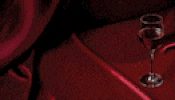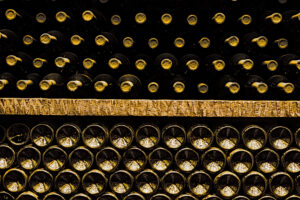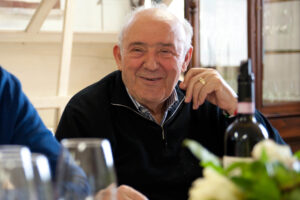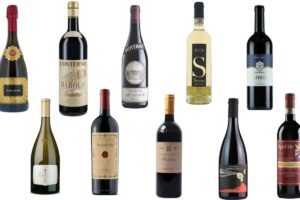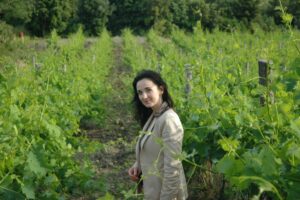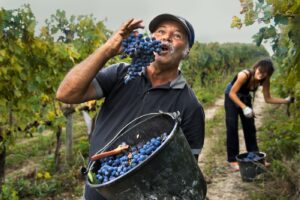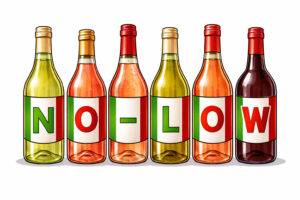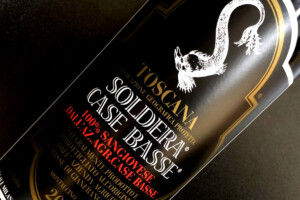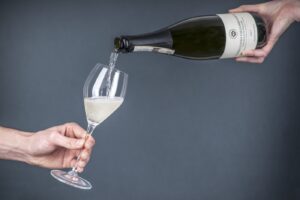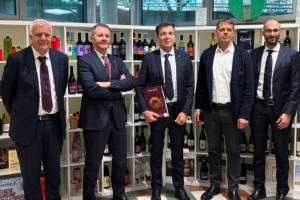They were labeled IGP Sorrento lemons, but were from Argentina and are just some of the 3.500 kilos of fruits and vegetables, dairy and food products with fake quality brand names seized by Nac (Italian Carabinieri anti-fraud squad) in inspections carried out all over Italy by the Carabinieri Command for Agriculture Policies, to protect consumers. Two million 500 thousand euros in administrative fines regarding illegal EU funding in fruits and vegetables have also been disputed.
The investigations, in collaboration with the Central Inspectorate for the Protection of the Quality and the Repression of Fraud (Icqrf), also affected fake Made in Italy products abroad, and Interpol collaborated to seize among others, counterfeited wines with the denominations, "Barolo, Chianti, Valpolicella, Montepulciano and Nero d'Avola" produced in Britain in "wine-kits" i.e., water soluble preparations passed off as Italian wines. The Nas Police (Anti counterfeiting squad) in Milan seized more than a ton and a half of various food products dangerous to the health of consumers, as they were dirty and in a poor state of preservation from Eastern Europe, exposing 13 foreigners.
"The commitment of our monitoring organizations in the fight against counterfeiting and forgery of Made in Italy products, continues through constant and thorough controls”, said the Minister of Agriculture, Mario Catania, “and activating the cooperation of the Interpol network has been particularly important. These control operations are essential to ensure compliance with the rules and protect the quality and safety of products delivered to our tables daily, but also to protect our honest producers from illegal actions that are occurring ever more frequently, both in Italy and abroad. “The special controls, carried out by the inspection organizations in recent weeks”, said Minister Catania, “were aimed above all to ensure traceability and that food products were effectively Made in Italy, paying special attention to compliance with product specifications and labeling rules of PDO, PGI and TSG quality brands. “Italian food is increasingly under siege”, said the CIA-Italian Farmers Confederation, “and often the more valuable products, marked PDO and PGI, which should provide an absolute guarantee of security, end up in the crossfire of fraud”.
In Italy, the CIA says, seizures of counterfeit goods exceed the value of one billion euros per year, and these figures are growing (control operations tripled in 2011). And it’s the consumers and Italian businesses that lose 3 million euros a day who are paying the price of this illegal business, says the association. In Italy, the Carabinieri anti-fraud squads in Rome, Parma and Salerno checked 92 farms and several outlets. They seized over 3.500 kg of products, including pasta, vegetables, dairy and prepared food.
In the province of Naples 6 tons of lemons from Argentina that were being illegally marketed with the protected designation of origin "lemons of Sorrento IGP" were seized. In the province of Foggia the wine production at several companies was tested and found to not match the physical inventory and accounting of the production and have been 100.000 euros in sanctions are under investigation. In the province of Salerno over 300 kilos of fresh pasta were also seized due to irregularities on labels and in the province of Macerata over 1.300 kilos of pizzas indicating brand name labels illegally, were seized.
In the fruits and vegetables sector, the NAC contested 2 million 500 thousand euros in administrative fines against producers' organizations for illicit funding. The investigation of the Carabinieri anti-fraud squad on counterfeiting of quality products also focused on false Made in Italy products abroad: the Interpol was called in to collaborate in fighting counterfeiting of wines with denominations, such as "Barolo, Chianti, Valpolicella, Montepulciano and Nero d'Avola" produced in Britain in "wine-kits" (water-soluble preparations) that foreign consumers are led to believe are Italian quality wines.
The same initiative was also taken to combat the production of false "Balsamic Vinegar of Modena IGP" in Germany. Confagricoltura says, “the strict supervision carried out by NAC on designations of origin and Made in Italy products is leading to significant results for the protection of consumers and producers”. In view of these results Confagricoltura hopes that the fight against international fraud that causes massive damage to the businesses and the image of our country, will continue. Most of the items seized by the Nas in Milan, the Carabinieri explained, consisted of salamis, meat, fish and cheese (which need to be kept in the refrigerator to prevent dangerous proliferation of pathogenic bacteria), were found instead at room temperature.
They also seized about 100 kilos of food of unknown provenance, including artisanal high-proof distilled spirits. The NAS police say they are constantly effecting controls aimed at identifying illegal food imports by individuals who introduce unsafe products on national territory, putting them on sale, in most cases, in local markets. In this sector, the NAS in Milan, in collaboration with regional Carabinieri, the ASL (local health authority) staff, the Police and the Polizia Annonaria (trading standards inspectors), carried out a series of health and hygiene inspections on Eastern European peddlers, finding that they had imported large quantities of food from their countries of origin.
The products were transported in vehicles unsuitable to ensure their safety that were dirty and had mold everywhere and were sold in a market in a parking lot in Milan (also attended by Italian citizens). They had been placed in plastic boxes without refrigerants, hygienic procedures were lacking and they had been stored next to non-food material”. Following the more than 20 victims of the vodka-killer methanol in the Czech Republic”, recalls Coldiretti, “the operation of the NAS is important in order to protect the health of Italian citizens”. In 2012, the association points out, the importation of liquor from the Czech Republic to Italy increased over five times: in the last six months 2.8 million kilos of vodka, brandy and other liquors have arrived in Italy. Shipments from other Eastern European countries such as Poland, Romania and Bulgaria, are expanding as well, with nearly half a million kilos, an increase in the last six months that is ten times more than the same period in 2011.
Copyright © 2000/2026
Contatti: info@winenews.it
Seguici anche su Twitter: @WineNewsIt
Seguici anche su Facebook: @winenewsit
Questo articolo è tratto dall'archivio di WineNews - Tutti i diritti riservati - Copyright © 2000/2026

